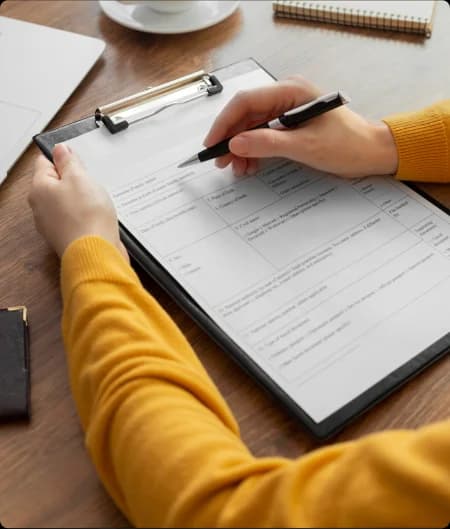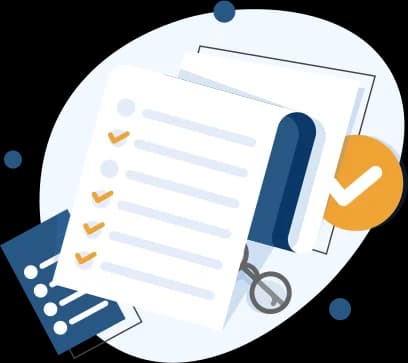EPR Registration in India – A Comprehensive Overview
Are you a manufacturer, importer, or brand owner dealing with electrical and electronic equipment (EEE), batteries, plastic packaging, or tires? If yes, then EPR registration with dostartup experts is essential to ensure regulatory compliance.
Extended Producer Responsibility (EPR) registration involves obtaining official approval from either the Central Pollution Control Board (CPCB) or the State Pollution Control Board (SPCB). This process helps implement EPR responsibilities under the Plastic Waste Management Rules, 2016, E‑Waste (Management) Rules, 2016, or the Environment (Protection) Act, 1986.
To specifically regulate plastic packaging, CPCB issues EPR registration certificates. All Producers, Importers, and Brand Owners (PIBOs) are required to register on the CPCB EPR Portal to fulfill their responsibilities under the plastic waste management framework.
This combined effort of both central and state authorities supports a robust system for environmental protection, with CPCB leading in plastic waste oversight. The integration of processes ensures a well‑rounded waste management strategy across the country.




Registration Form
Let our CA-certified experts handle your business registrations , legal compliance, and tax needs — while you focus on growing your business with peace of mind.
What You Get:
- Personalized Expert Guidance
- Hassle-Free Documentation
- Fast & Transparent Process
- Dedicated Support Team
- Affordable & Flexible Plans
- Secure & Confidential Handling
- Timely Updates & Reminders
Free Consultation by Expert
Features That Empower You
We provide end-to-end solutions with expert support, ensuring your journey is seamless and stress-free.
Electrical & Electronic Equipment (EEE)
Covered under the E‑Waste (Management) Rules, 2016; includes computers, TVs, refrigerators, etc.
Plastic Packaging Products
Regulated by the Plastic Waste Management Rules, 2016; includes single‑use and multilayer packaging.
Batteries & Accumulators
Managed under the Batteries (Management and Handling) Rules, 2001; covers lead‑acid, lithium, and other chemistries.
Other Packaging Materials
Governed by applicable environmental rules for paper, glass, metal and composite packaging.
Who Needs to Register?
Efficient Waste Management
Ensures proper processing, recycling and disposal of plastic and electronic waste.
Cost Optimization
Reduces long‑term waste processing costs through better product design and partnerships.
Positive Brand Image
Boosts organizational goodwill as eco‑conscious customers prefer sustainable brands.
Regulatory Compliance
Demonstrates legal adherence and avoids penalties under CPCB/SPCB norms.
Sustainable Development
Conserves natural resources and promotes cleaner production practices.
How To File It Online?
Follow this step-by-step guide to ensure your response is submitted correctly

Signed Application Form
Duly filled and signed EPR application on the CPCB/SPCB portal.
Detailed EPR Plan
Description of collection, recycling and disposal mechanisms.
Business Authorization
Certificate of Incorporation, PAN, IEC and address proof.
MoUs & Agreements
Partnerships with recyclers, waste collectors and transporters.
Awareness Programs
Details and budget for consumer awareness and outreach.
Compliance Reports
Estimates of waste generation and evidence of past recycling performance.
1Who Must Register
- Producers, Importers and Brand Owners (PIBOs) operating in more than 2 states/UTs must apply via CPCB.
- PIBOs operating in 1–2 states/UTs must apply via the respective SPCB/PCC portals.
2Importer-Specific Criteria
- Products sold under your brand or original owner's name in India.
- Sales made directly or through third‑party distributors.

Key Benefits
- Shifts waste management to producers, reducing public burden.
- Supports circular economy through recycling and reuse.
- Enhances brand value by demonstrating environmental responsibility.
Pitfalls to Avoid During Filing
Common errors that can delay your submission
Incomplete Documentation
Missing MoUs or incomplete EPR plan.
Leads to application rejection or delays.
Wrong Category Selection
Misclassifying waste type.
Causes non‑compliance with the correct rules.
Late Renewal
Missing the 3‑month pre‑expiry window.
Results in certificate lapse and penalties.
Portal Errors
Incorrect form submissions online.
Requires multiple corrections and follow‑ups.
Incorrect Fee Payment
Underpaying or overpaying initial or annual fees.
Leads to payment reconciliation issues.
Unverified Partnerships
MOUs with non‑CPCB approved recyclers.
Invalidates waste collection commitments.
| Feature | EPR for E‑Waste | EPR for Plastic Waste |
|---|---|---|
| Scope | Entire electronics lifecycle | Packaging materials only |
| Authority | CPCB/SPCB under E‑Waste Rules | CPCB under PWM Rules |
| Validity | 5 years | 1 year |
| Review Body | SPCB/PCC or CPCB | CPCB only |
| Primary Goal | Reduce hazardous e‑waste | Minimize plastic pollution |
Streamlined Filing Process
- Application Filing & Portal Setup: 1–2 days1
- Review & Approval: 15–30 working days2
- Certificate Issuance: digital certificate upon approval3
- Initial Fees: ₹5,000–₹50,000 depending on category and TPA4
- Annual Fee: 25% of initial registration fee5

Why Trust DoStartup?
Professional services with guaranteed satisfaction
Portal Account Setup
Registration and login credentials on the CPCB EPR portal.
Document Preparation
Compilation and digitization of all required files for upload.
End-to-End Filing
Online application, fee payment and liaison with authorities.
Renewal & Compliance
Reminders, updated submissions and performance reporting.
Legal Advisory
Expert guidance on EPR obligations under Plastic & E‑Waste Rules.
Frequently Asked Questions
Have a look at the answers to the most asked questions